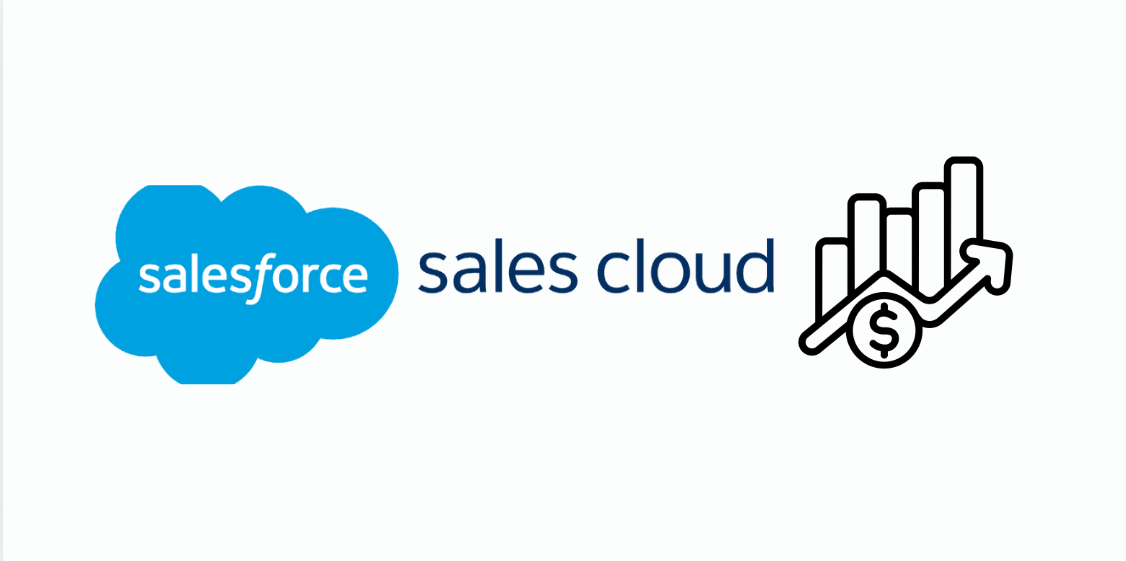Introduction
In today’s hyper-competitive business landscape, sales team need more than just traditional customer management tools to stay ahead. They require intelligent, data-driven solutions that streamline workflows, enhance collaboration, and boost productivity.
Salesforce Sales Cloud stands as one of the most powerful CRM platforms, specifically designed to drive sales efficiency, optimize processes, and increase revenue. But how exactly does it do that? Let’s explore how Salesforce Sales Cloud transforms sales performance and what the future holds with AI and automation.
Understanding Salesforce Sales Cloud
Salesforce Sales Cloud is a cloud-based Customer Relationship Management (CRM) platform tailored for sales teams. It offers a
centralized system where businesses can store customer data, manage leads, track interactions, and automate sales tasks.
Key Features of Salesforce Sales Cloud:
- Lead and Opportunity Management: Helps sales reps track leads from initial contact to conversion.
- Account and Contact Management: Provides a 360-degree view of customer interactions and history.
- Sales Forecasting: Uses AI-powered analytics to predict sales trends.
- Workflow Automation: Automates repetitive sales tasks to enhance efficiency.
- Sales Forecasting: Uses AI-powered analytics to predict sales trends.
- Mobile Accessibility: Sales teams can access CRM data on the go.
- Collaboration Tools: Seamless communication between sales, marketing, and support teams.
- Customizable Dashboards: Real-time insights and reporting for data-driven decisions.
How Salesforce Sales Cloud Enhances Sales Performance
1. Streamlined Sales Processes
With its powerful automation capabilities, Sales Cloud eliminates repetitive administrative tasks, enabling sales representatives to focus on what they do best selling. Processes such as lead assignments, follow-ups, contract approvals, and quote management are automated, reducing manual errors and accelerating deal closures.
Key Benefits:
- Reduced sales cycle time
- Faster deal closures
- Increased productivity
KPIs to Measure:
- Average Sales Cycle Length – Tracks how long it takes to close a deal.
- Sales Rep Productivity – Measures the time spent on selling versus administrative work.
- Lead Response Time – Evaluates how quickly sales reps engage with new leads.
2. Data-Driven Decision Making
Sales Cloud provides real-time dashboards and AI-driven analytics that help sales managers track performance, analyse trends, and forecast revenue with precision. By leveraging actionable insights, businesses can make informed decisions that optimize sales strategies.
Key Benefits:
- Enhanced sales forecasting accuracy
- Better visibility into pipeline health
- Data-backed decision-making
KPIs to Measure:
- Forecast Accuracy – Compares projected sales against actual revenue.
- Pipeline Coverage Ratio – Measures the health of the sales pipeline.
- Win Rate Percentage – Tracks the percentage of closed deals versus total opportunities.
3. Better Lead Management and Higher Conversion Rates
Salesforce Sales Cloud utilizes AI-driven lead scoring to prioritize high-value leads, ensuring sales reps focus their efforts where they matter most. By nurturing leads with personalized engagement, businesses see improved conversion rates and revenue growth
Key Benefits:
- Higher lead-to-customer conversion rates
- Efficient lead prioritization with AI
- Reduced customer acquisition costs
KPIs to Measure:
- Lead Conversion Rate – Percentage of leads that turn into customers.
- Customer Acquisition Cost (CAC) – Measures the cost of acquiring a new customer.
- Lead Engagement Rate – Tracks how effectively leads interact with sales outreach.
4. Improved Customer Relationships
Sales Cloud provides a
360-degree view of each customer, ensuring personalized engagement based on past interactions, preferences, and purchase history. By tailoring sales strategies to individual customer needs, businesses foster stronger relationships and drive long-term loyalty.
Key Benefits:
- Personalized customer engagement
- Improved customer satisfaction and retention
- Increased upselling and cross-selling opportunities
KPIs to Measure:
- Customer Retention Rate – Measures how well customers stay engaged.
- Customer Satisfaction Score (CSAT) – Gauges customer happiness with interactions.
- Net Promoter Score (NPS) – Measures the likelihood of customers recommending your business.
5. Seamless Collaboration Across Teams
With
Salesforce Chatter and shared CRM access, sales teams can collaborate effortlessly with marketing, customer support, and operations. This alignment ensures that sales strategies are backed by marketing insights and customer service feedback, leading to an improved buyer experience.
Key Benefits:
- Enhanced communication across departments
- Unified approach to customer engagement
- Reduced information silos
KPIs to Measure:
- Team Collaboration Score – Measures interaction levels across departments.
- Customer Resolution Time – Tracks how fast sales and support teams resolve customer issues.
- Cross-Department Sales Influence – Evaluates how marketing and support contribute to closed deals.
6. Increased Mobility for Sales Teams
With the
Salesforce mobile app, sales reps can work efficiently from anywhere—whether they’re meeting a client, traveling, or working remotely. Real-time access to customer data, task updates, and sales forecasts ensures that teams remain productive and responsive on the go.
Key Benefits:
- Greater flexibility and accessibility
- Faster response times to customer inquiries
- Improved field sales performance
KPIs to Measure:
- Mobile Adoption Rate – Measures how often sales reps use the mobile CRM.
- Field Sales Performance – Evaluates sales closed outside the office.
- Time-to-Update CRM Records – Tracks how quickly sales reps log information.
The Future of Salesforce Sales Cloud: AI & Automation
As businesses embrace digital transformation, the future of Salesforce Sales Cloud is set to become even more powerful with AI and automation. Here’s what we can expect:
1. AI-Powered Predictive Analytics
With
Salesforce Einstein AI, sales teams will be able to predict customer behaviour, recommend next-best actions, and uncover hidden sales opportunities. This will lead to more proactive sales strategies and better decision-making.
2. Automated Sales Assistants
AI-driven chatbots and virtual assistants will handle routine customer queries, schedule meetings, and follow up on leads, allowing sales reps to focus on high-priority deals.
3. Smart Sales Forecasting
Advanced machine learning models will enhance sales forecasting, helping businesses plan more effectively and allocate resources efficiently.
4. Deeper Personalization with AI
Future enhancements in AI will enable even more personalized customer engagement. Predictive insights will suggest personalized email templates, offers, and communication styles based on a customer’s past behaviour.
5. Robotic Process Automation (RPA) for Sales Workflows
Automation will take centre stage, eliminating repetitive data entry tasks and seamlessly integrating sales processes with marketing and customer service functions.
Conclusion
Salesforce Sales Cloud has already transformed how businesses manage and optimize their sales processes. By leveraging its powerful CRM capabilities, sales teams can increase efficiency, improve customer engagement, and drive higher revenue. With AI and automation shaping the future, the potential for Salesforce Sales Cloud to revolutionize sales performance is limitless. Businesses that embrace these advancements will not only stay ahead of the competition but also build long-term, profitable customer relationships.
If you’re looking to supercharge your sales team’s performance, investing in
Salesforce Sales Cloud is the right move. The
future of sales is intelligent, automated, and data-driven—Sales Cloud ensures you’re prepared for it.





